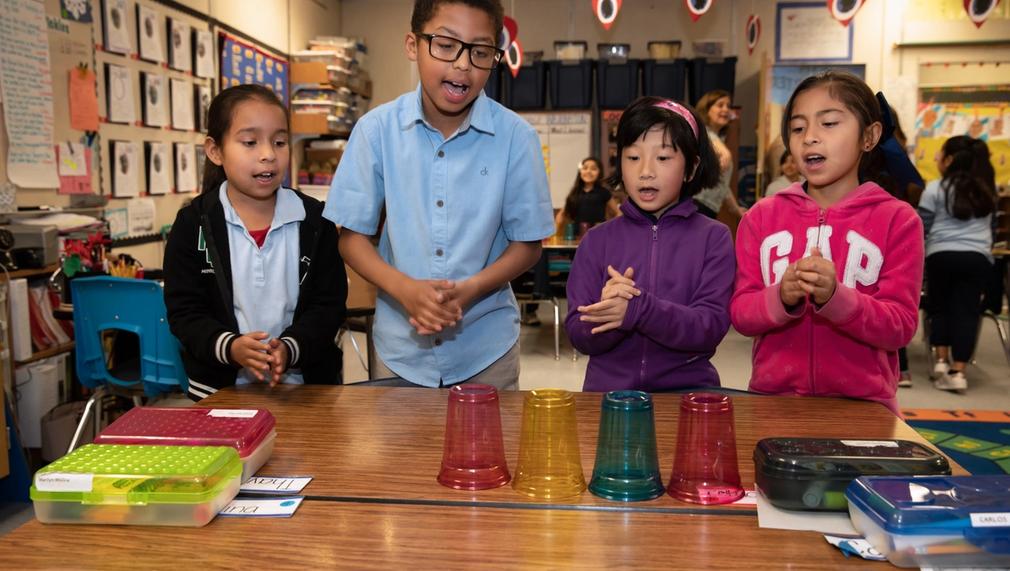Arts for All Children, Youth, and Families
Coordinated by the Department of Arts and Culture, the LA County Arts Education Collective is a public-private, collective impact initiative dedicated to making the arts a core part of every child’s growth and development. We work to ensure all young people engage in culturally sustaining arts education in school, after school, and in communities; and support regional efforts to provide arts education for children, youth, and families as well as professional development, customized support, and networking for educators and arts practitioners.

What is the primary issue area that your application will impact?
K-12 STEAM education
In what stage of innovation is this project, program, or initiative?
Expand existing project, program, or initiative (expanding and continuing ongoing, successful work)
What is your understanding of the issue that you are seeking to address?
Studies show that arts education builds well-rounded individuals, supports social-emotional development, fosters empathy, improves school culture, and develops valuable career skills. However, despite increased funding and advocacy efforts, nearly 90% of California’s K-12 schools do not provide instruction in all four state-mandated arts disciplines (music, dance, theatre, and visual arts). A 2015-17 study in LA County also found that public schools with a larger share of English learners, students eligible for free or reduced-price meals (a proxy for low income), and students of color tended to provide less arts instruction and instruction of lower quality. Even with statewide funding initiatives like Prop 28, which is limited to hiring classroom teachers, a multi-pronged approach involving district leadership, school communities, and community arts providers are necessary to advance scale and equity in school-based arts education.
Describe the project, program, or initiative this grant will support to address the issue.
Every school year, all school district partners of the Arts Ed Collective are offered a continuum of mutually aligned and supportive services, free of charge: STRATEGIC PLAN COACHING: School districts interested in creating, updating, or implementing a five-year, school board–adopted strategic plan receive year-long coaching to support the expansion of arts education in their schools. For example, Inglewood Unified is the first district to build a CTE Arts, Media, Entertainment (AME) and Visual and Performing Arts (VAPA) plan and will receive support from an Arts Ed Collective coach to establish clear pathways for students to pursue creative careers by collaborating and engaging with industry partners, educators, students, parents, community, and policymakers. ADVANCEMENT GRANT PROGRAM: School districts that formally adopt strategic arts plans are eligible for matching grants that support implementation of key action items in these plans that initiate or expand TK-12 arts instruction. For example, at Wiseburn Unified, grant funds will support a STEAM artist residency for the Transitional Kindergarten and Kindergarten classes, and district-wide elementary teacher professional development in dance–integrated physical education instruction. This funding is intended to provide flexible investments into arts education infrastructure that may not be covered by state funding sources like Prop 28.
Describe how Los Angeles County will be different if your work is successful.
Our ultimate intended impact is to develop school-based systems that expand and sustain arts education for all young people in LA County, particularly students who are eligible for free/reduced price meals (proxy for low household income), English learners, and youth impacted by child welfare systems. To date, the Arts Ed Collective has partnered with 74 of the 80 school districts in LA County, plus five charter networks. Just as important as increased financial investments are changes in behaviors and attitudes. Across LA County, school districts report having a common language to talk about the arts, stronger working relationships within district teams, shifts to increasing the quality of arts instruction as well as its quantity, greater interest in arts integration, new community partnerships, and new solutions to managing fiscal constraints.
What evidence do you have that this project, program, or initiative is or will be successful, and how will you define and measure success?
To measure outcomes of the strategic planning process, Arts Ed Collective coaches submit final reports on their work with districts. Information gathered is qualitative (e.g. effects on practices, community dynamics, pedagogy) and quantitative (e.g. # of meetings, districtwide stakeholders). Quarterly convenings also provide a forum for school district stakeholders to provide direct feedback about our programs/services. Data regarding beneficiaries of the Advancement Grant, including students and teachers, are self-reported by school districts in Advancement Grant proposals, contracts, and reports. Grantee final reports summarize the activities and results of their projects, and capture data that inform understanding of the work undertaken by each grantee and the level of success they achieved. Taken together, these methods help measure the overall success of programs/services, identify ways to better support school district partners, and inform areas for program improvement.
Describe the role of collaborating organizations on this project.
School districts work closely with a coach to initiate or implement a five-year plan that builds capacity for delivering year-round K-12 arts education. Coaches guide district planning teams through data collection, analysis of strengths and challenges, visioning, and strategies for scale. Teams may include administrators, principals, arts specialists, teachers, students, parents, community arts partners, business leaders, or philanthropic representatives. Districts with an active or in-progress strategic arts plan may use matching Advancement Grant funds to support projects like: direct services to students (e.g., teaching artist residencies), teacher professional development, districtwide arts coordination, curriculum development, and material purchases (e.g., musical instruments).
Approximately how many people will be impacted by this project, program, or initiative?
Direct Impact: 54,426.0
Indirect Impact: 333,554.0